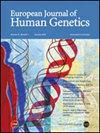Using a behaviour-change approach to support uptake of population genomic screening and management options for breast or prostate cancer
IF 3.7
2区 生物学
Q2 BIOCHEMISTRY & MOLECULAR BIOLOGY
引用次数: 0
Abstract
As the possibility of implementing population genomic screening programs for the risk of developing hereditary cancers in health systems increases, understanding how to support individuals who wish to have genomic screening is essential. This qualitative study aimed to link public perceived barriers to a) taking up the offer of population genomic screening for breast or prostate cancer risk and b) taking up risk-management options following their result, with possible theory-informed behaviour-change approaches that may support implementation. Ten focus groups were conducted with a total of 25 members of the Australian public to identify and then categorise barriers within the behaviour-change Capability, Opportunity, Motivation - Behaviour (COM-B) model. Ten COM-B categorised barriers were identified as perceived influences on an individual’s intentions to take-up the offer, including Capability (e.g., low public awareness), Opportunity (e.g., inconvenient sample collection procedure) and Motivation (e.g., genomic screening not perceived as relevant to an individual). Ten barriers for taking up risk-management options included Motivation (e.g., concerns about adverse health impact) and Opportunity (e.g., social opportunity and cost incurred to the individual). Our findings demonstrate that a nuanced approach is required to support people to take-up the offer of population genomic screening and, where appropriate, to adopt risk-management options. Even amongst participants who were enthusiastic about a population genomic screening program, needs were varied, demanding a range of implementation strategies. Promulgating equitable uptake of genomic screening and management options for breast and prostate cancer risk will require a needs-based approach.

采用改变行为的方法,支持人群接受乳腺癌或前列腺癌基因组筛查和管理方案。
随着在医疗系统中实施针对遗传性癌症发病风险的人群基因组筛查计划的可能性越来越大,了解如何为希望进行基因组筛查的个人提供支持至关重要。这项定性研究旨在将公众在以下两方面所感知到的障碍联系起来:a) 接受乳腺癌或前列腺癌风险人群基因组筛查的提议;b) 在筛查结果出来后采取风险管理方案。我们与总共 25 名澳大利亚公众进行了 10 次焦点小组讨论,以确定并分类行为改变的能力、机会、动机-行为(COM-B)模型中的障碍。在能力(如公众认知度低)、机会(如样本采集程序不便)和动机(如认为基因组筛查与个人无关)等方面,确定了 10 个 COM-B 分类障碍,这些障碍被认为会影响个人接受该提议的意愿。采取风险管理方案的十个障碍包括动机(如担心对健康的不利影响)和机会(如社会机会和个人承担的费用)。我们的研究结果表明,需要采取细致入微的方法来支持人们接受人群基因组筛查,并在适当的情况下采用风险管理方案。即使是对人群基因组筛查计划充满热情的参与者,他们的需求也各不相同,因此需要采取一系列的实施策略。要促进公平地接受基因组筛查以及乳腺癌和前列腺癌风险的管理方案,就需要采取基于需求的方法。
本文章由计算机程序翻译,如有差异,请以英文原文为准。
求助全文
约1分钟内获得全文
求助全文
来源期刊

European Journal of Human Genetics
生物-生化与分子生物学
CiteScore
9.90
自引率
5.80%
发文量
216
审稿时长
2 months
期刊介绍:
The European Journal of Human Genetics is the official journal of the European Society of Human Genetics, publishing high-quality, original research papers, short reports and reviews in the rapidly expanding field of human genetics and genomics. It covers molecular, clinical and cytogenetics, interfacing between advanced biomedical research and the clinician, and bridging the great diversity of facilities, resources and viewpoints in the genetics community.
Key areas include:
-Monogenic and multifactorial disorders
-Development and malformation
-Hereditary cancer
-Medical Genomics
-Gene mapping and functional studies
-Genotype-phenotype correlations
-Genetic variation and genome diversity
-Statistical and computational genetics
-Bioinformatics
-Advances in diagnostics
-Therapy and prevention
-Animal models
-Genetic services
-Community genetics
 求助内容:
求助内容: 应助结果提醒方式:
应助结果提醒方式:


